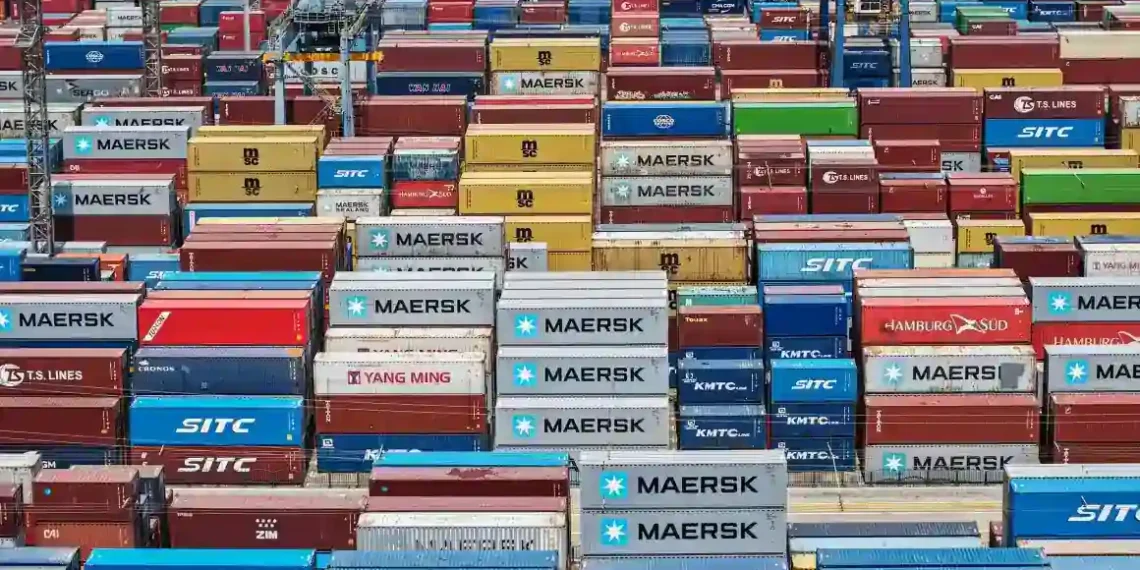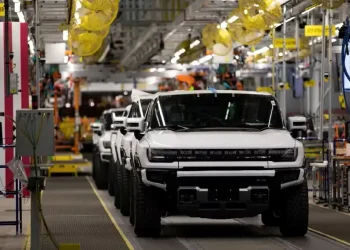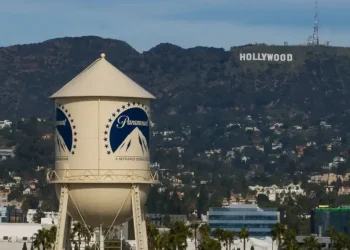Trump’s Trade Talks with China: A Critical Moment for the Global Economy
This week, U.S. President Donald Trump’s top trade officials will meet with their Chinese counterparts in Geneva to discuss the future of the ongoing trade war between the two largest economies in the world. The stakes couldn’t be higher: the global economy’s future hinges on the success of these discussions.
A Temporary De-Escalation, Not a Trade Deal
While the trade talks mark the first in-person meeting between U.S. and Chinese officials since the tariff battle intensified in March, expectations for an immediate breakthrough are low. Treasury Secretary Scott Bessent indicated that these talks are not about finalizing a trade deal, but rather about de-escalating the situation before more damage is done.
Trade between the two countries has already taken a hit, with tariffs reaching record levels. The U.S. has imposed a 145% tariff on many Chinese imports, while China has retaliated with a 125% tariff on American goods. As the first wave of tariff-free shipments is unloaded, businesses now face a tough decision: absorb the new costs or stop selling altogether. Consumers will soon feel the impact, with prices expected to rise and potential shortages on the horizon.
Economic Pain on Both Sides
The tariffs are taking a toll on both economies. In the U.S., the first quarter saw a rare contraction, marking its first decline in three years. Businesses scrambled to stockpile goods ahead of the tariffs, contributing to the slowdown. Meanwhile, China’s factory activity shrank sharply in April, with its government likely to introduce additional stimulus measures to combat the downturn.
Though the U.S.-China trade conflict is the most aggressive, Trump has extended tariffs to most other countries as well, including a 10% tariff on nearly all imports and 25% tariffs on steel, aluminum, autos, and goods from Mexico and Canada. This broad trade disruption has put the global economy on edge, with economists from the IMF, OECD, and World Bank warning of serious consequences, including slower growth and higher inflation worldwide. The U.S. itself is expected to suffer significant economic setbacks, with some analysts predicting a recession.
Signs of Thawing Tensions
Despite the tensions, both sides are acknowledging the unsustainable nature of the current situation. U.S. Trade Representative Jamieson Greer and Bessent are set to meet with Chinese officials in Switzerland this week, marking a significant step toward de-escalation. Bessent, however, managed expectations by emphasizing that this is only the first phase of the process.
“My sense is that this will be about de-escalation, not about the big trade deal,” Bessent told Fox News. “We’ve got to de-escalate before we can move forward.”
In recent weeks, both countries have softened their rhetoric. President Trump hinted that he might lower tariffs on China “at some point,” while China has signaled a willingness to consider U.S. proposals to begin trade talks.
China’s Economic Strain
China, for its part, has been standing firm in public, but the economic strain is beginning to show. To boost liquidity and stimulate growth, the People’s Bank of China recently cut the reserve requirement ratio for banks and reduced interest rates on key financial instruments. Wall Street responded positively to these moves, with markets seeing a boost in the days leading up to the talks.
Trade Between the Two Countries Near a Standstill
The economic toll of the trade war is becoming increasingly apparent. April saw a dramatic 60% drop in cargo shipments from China to the U.S., according to logistics firm Flexport. JPMorgan estimates that Chinese imports into the U.S. could drop as much as 80% in the second half of the year.
As Flexport CEO Ryan Petersen pointed out, “It’s only a matter of time before they sell through existing inventory, and then you’ll see shortages. And that’s when you see price hikes.”
At the Port of Los Angeles, expected shipments have already been canceled, with 20% fewer vessels arriving this month compared to last year. “This week, we’re down about 35% compared to the same time last year,” said Gene Seroka, the port’s executive director.
No Deal Yet, But Hope for Progress
Despite the growing economic crisis, both nations remain far from a comprehensive deal. Each side is holding out for major concessions from the other, and the road to normalizing trade relations with China is expected to take years, according to Bessent.
But even without a formal agreement, the face-to-face talks in Switzerland offer a glimmer of hope. With both countries suffering significant self-inflicted damage, the need for de-escalation is becoming undeniable.
Trump himself acknowledged the need for change: “At some point, I’m going to lower [the tariffs] because otherwise you could never do business with them,” he said. “They want to do business very much… their economy is collapsing.”
As the global economy teeters, the outcome of this week’s talks will set the stage for the next chapter in the U.S.-China trade saga—and could be the first step toward a much-needed resolution.
source: CNN – Trump’s team is finally meeting with China. The future of the global economy is riding on its success
This article was rewritten by JournosNews.com based on verified reporting from trusted sources. The content has been independently reviewed, fact-checked, and edited for accuracy, neutrality, tone, and global readability in accordance with Google News and AdSense standards.
All opinions, quotes, or statements from contributors, experts, or sourced organizations do not necessarily reflect the views of JournosNews.com. JournosNews.com maintains full editorial independence from any external funders, sponsors, or organizations.
Stay informed with JournosNews.com — your trusted source for verified global reporting and in-depth analysis. Follow us on Google News, BlueSky, and X for real-time updates.














